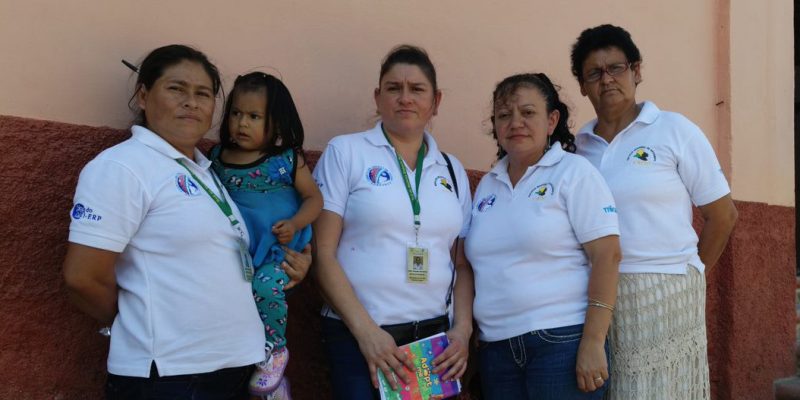
Volunteers from the audit team that conducted surveys at health units in San Nicolás, Honduras
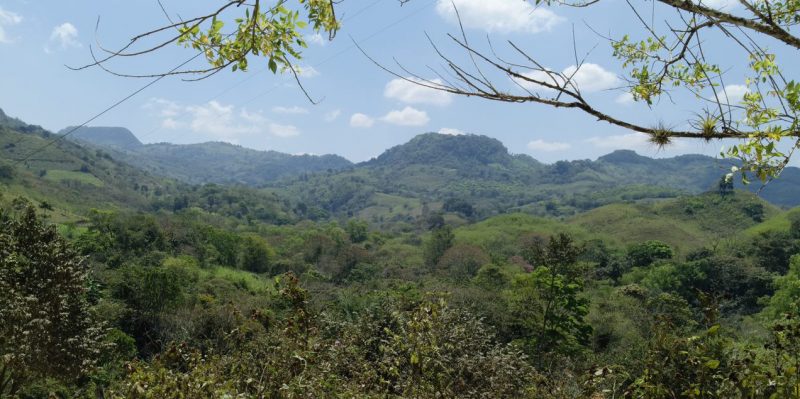
Claudia Pirela, MCC
My view along a winding road that leads to Copán
Residents demand increased capacity
The first town I visited was in Copán, a rural region of the country with winding roads and picturesque views of Honduras’ abundant green hills. In San Nicolás, Copán, an organization called Regional Western Space for Honduras (Espacio Regional de Occidente Honduras, EROC) trained women’s networks to audit the quality of care at their local health centers. The audit yielded several results that surprised community members. They learned that almost 60% of women treated at the health center did not know what illness they had or what kind of medication they were prescribed, even though the sharing of this information is required under the new public health model.Most significantly, the audit identified the need for an additional doctor in the area. Before the audit, San Nicolás residents had to share one doctor who would ferry between multiple health units. By capitalizing on strong ties to the local government and members of the community as well as a lengthy public awareness campaign on the purpose of the social audit, the women’s network conducting the audit presented their results to the mayor’s office and, working with their local mancomunidad, or municipal association, secured funding for an additional doctor. Carlos Chinchilla, director of EROC, told me that “if the population hadn’t demanded it, things would have continued as before.”
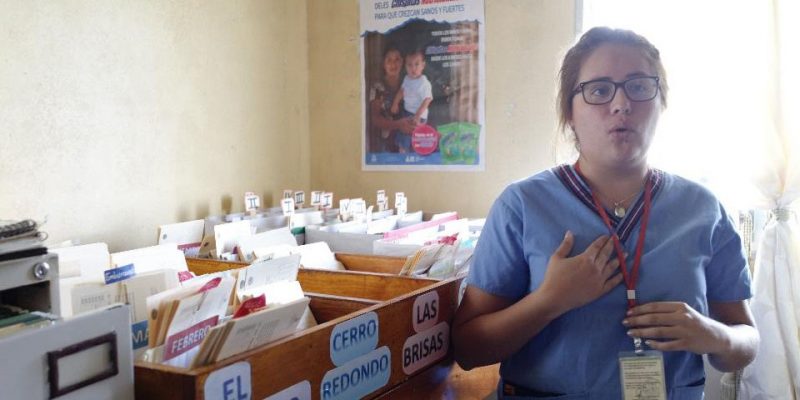
Claudia Pirela, MCC
Dr. Idalmy Maldonado, who was brought to San Nicolás as a result of the social audits, explains how patient records are filed and categorized.
Clinics get organized to reduce patients’ confusion
Following my visit to San Nicolás, I traveled to Choluteca, an area in southern Honduras with flatter and hotter surroundings, and a mere three-hour drive from the capital. There I met Ada Luz Ramirez, the young and enthusiastic head of the team that audited the health units in the municipality of Orocuina. Along with volunteers from the Association of Women Defenders of Life (Asociacion de Mujeres Defensores de Vida, AMDV), we visited a newly reorganized health unit that now had a walled off area for immunizations. Areas specifically designated for different types of care, along with new signage, have brought order to the center and decreased confusion among patients.Like EROC in Copán, AMDV in Choluteca also utilized their strong relationships with the mayor’s office and the community to enact several changes in the way patients are received and treated at these health units. Nurses Rosa del Carmen Aguilar and Ada Yamilet Rodezno, who now wear name tags so patients can more easily identify them at the health centers (the result of another audit finding), explained to me that she and her colleagues are now empowered to hold doctors in the health units accountable for ensuring every patient that arrives within prescribed hours receives treatment. Before the audit, doctors could choose when they would stop seeing patients for the day. AMDV is also working with the mayor’s office to secure funds for additional staff for these centers as a result of the findings of the audit.
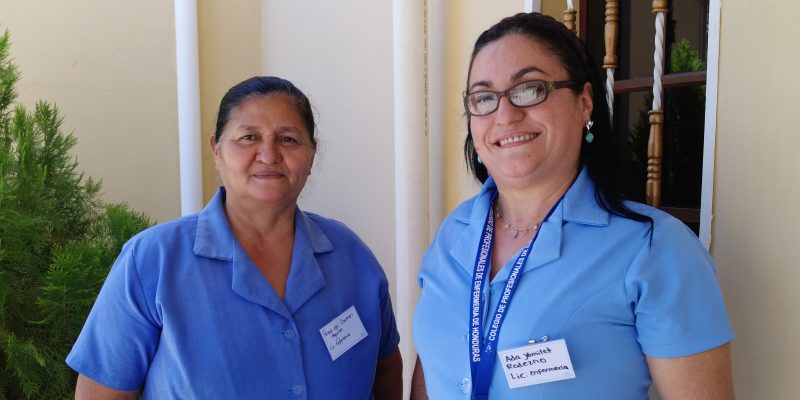
Claudia Pirela, MCC
Nurses Rosa del Carmen Aguilar and Ada Yamilet Rodezno
Patients gain confidence in clinics
Finally, I spoke with Luz Estela Sanchez, a resident of Orocuina who has been a patient for the last three years at one of the health units we visited and now volunteers there to help build awareness of the improved health services among the community. Luz told me that the quality of service at her local clinic has improved markedly. “Before, the staff did not bother to inform patients about their diagnosis or what kind of medicine they were getting. Now they get regular chats from the staff, doctors and nurses about what they have and how they can prevent it or treat it.”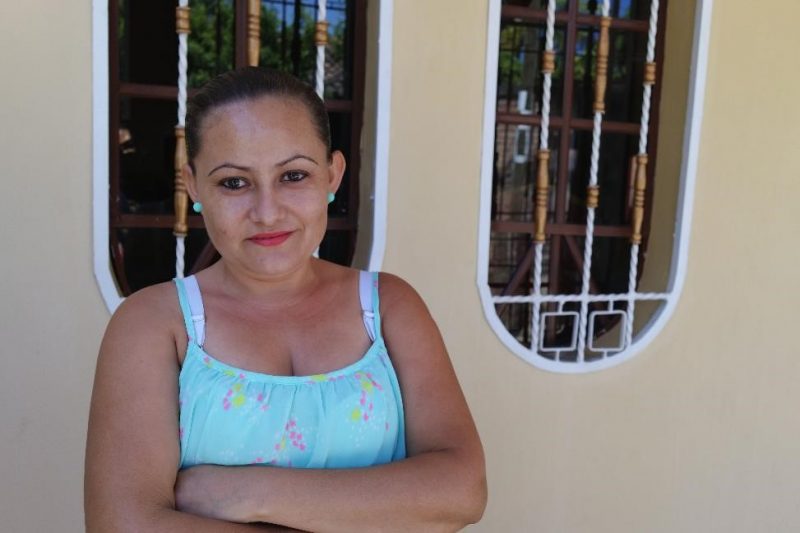
Luz Estela Sanchez, resident of Orocuina

